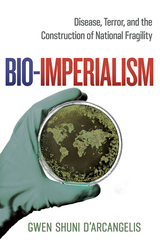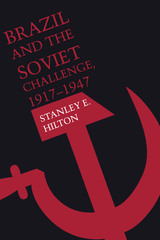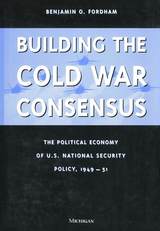4 start with B start with B


Biosecurity Dilemmas examines conflicting values and interests in the practice of “biosecurity,” the safeguarding of populations against infectious diseases through security policies. Biosecurity encompasses both the natural occurrence of deadly disease outbreaks and the use of biological weapons. Christian Enemark focuses on six dreaded diseases that governments and international organizations give high priority for research, regulation, surveillance, and rapid response: pandemic influenza, drug-resistant tuberculosis, smallpox, Ebola, plague, and anthrax. The book is organized around four ethical dilemmas that arise when fear causes these diseases to be framed in terms of national or international security: protect or proliferate, secure or stifle, remedy or overkill, and attention or neglect. For instance, will prioritizing research into defending against a rare event such as a bioterrorist attack divert funds away from research into commonly occurring diseases? Or will securitizing a particular disease actually stifle research progress owing to security classification measures? Enemark provides a comprehensive analysis of the ethics of securitizing disease and explores ideas and policy recommendations about biological arms control, global health security, and public health ethics.

Between 1918 and 1961, Brazil and the USSR maintained formal diplomatic ties for only thirty-one months, at the end of World War II. Yet, despite the official distance, the USSR is the only external actor whose behavior, real or imagined, influenced the structure of the Brazilian state in the twentieth century. In Brazil and the Soviet Challenge, 1917–1947, Stanley Hilton provides the first analysis in any language of Brazilian policy toward the Soviet Union during this period.
Drawing on American, British, and German diplomatic archives and unprecedented access to official and private Brazilian records, Hilton elucidates the connection between the Brazilian elite’s perception of a communist threat and the creation of the authoritarian Estado Novo (1937–1945), the forerunner of the post-1964 national security state. He shows how the 1935 communist revolt, prepared by Comintern agents, was a pivotal event in Brazilian history, making prophets of conservative alarmists and generating irresistible pressure for an authoritarian government to contain the Soviet threat. He details the Brazilian government’s secret cooperation with the Gestapo during the 1930s and its concomitant efforts to forge an anti-Soviet front in the Southern Cone. And he uncovers an unexplored aspect of Brazil’s national security policy, namely, the attempt to build counterintelligence capabilities not only within Brazil but also in neighboring countries.
While the history of the Brazilian communist movement has been extensively studied, this is the first work to explore how images of the Soviet Union and its policies influenced the Brazilian foreign policy elite. It will be important reading for all students of twentieth-century political history.

Using a statistical analysis of the economic sources of support and opposition to the Truman Administration's foreign policy, and a historical account of the crucial period between the summer of 1949 and the winter of 1951, Fordham integrates the political struggle over NSC 68, the decision to intervene in the Korean War, and congressional debates over the Fair Deal, McCarthyism and military spending. The Truman Administration's policy was politically successful not only because it appealed to internationally oriented sectors of the U.S. economy, but also because it was linked to domestic policies favored by domestically oriented, labor-sensitive sectors that would otherwise have opposed it.
This interpretation of Cold War foreign policy will interest political scientists and historians concerned with the origins of the Cold War, American social welfare policy, McCarthyism, and the Korean War, and the theoretical argument it advances will be of interest broadly to scholars of U.S. foreign policy, American politics, and international relations theory.
Benjamin O. Fordham is Assistant Professor of Political Science, State University of New York at Albany.
READERS
Browse our collection.
PUBLISHERS
See BiblioVault's publisher services.
STUDENT SERVICES
Files for college accessibility offices.
UChicago Accessibility Resources
home | accessibility | search | about | contact us
BiblioVault ® 2001 - 2024
The University of Chicago Press









